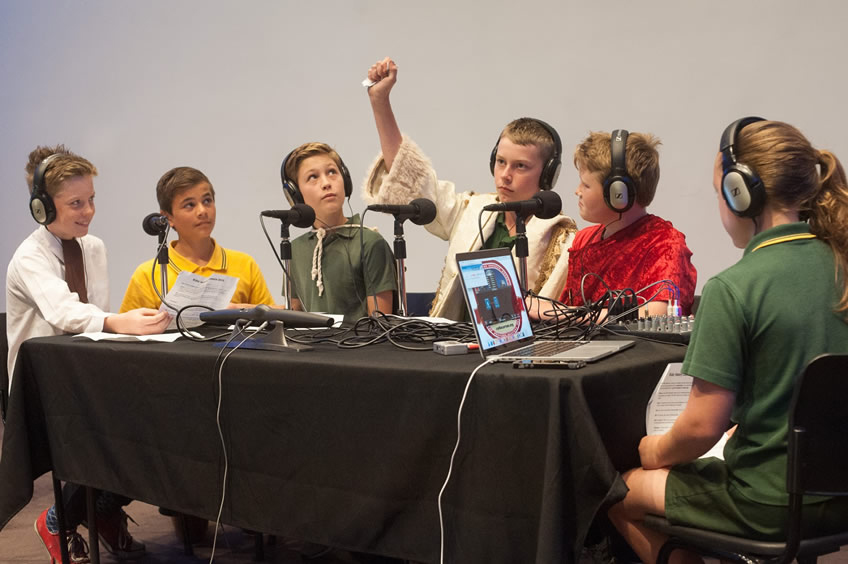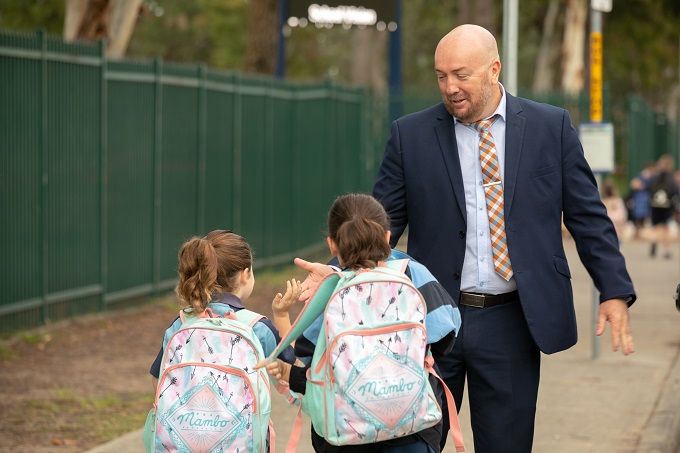Why Your School Needs an EAL/D Leader
A program employing specialist EAL/D Education Leaders to improve learning outcomes for students learning English as an additional language or dialect (EAL/D) has shown early success in NSW public schools as well as broad impacts across the entire school community.

The strategy involves thirty specialised English as an Additional Language or Dialect (EAL/D) Education Leaders being placed in 29 schools of high need across the state.
Raylene Park is an EAL/D Education Leader who is now based at Birrong Girls High School in the southwestern suburbs of Sydney. More than 90% of the 786 students enrolled at Birrong are from Language Backgrounds Other than English (LOTE), with a diverse range of cultural backgrounds comprising 49 language groups.
Principal Zena Dabaja said “The majority of families come from low socio-economic backgrounds but are highly aspirational in relation to their daughters’ futures and the education they would like them to achieve. While the demographics are slowly shifting, we still have a significant portion of our school community who will be the first in their families to attend university. In families where this is not the case, it is because elder siblings have been the first to attend.”
Building on past success
Prior to having an EAL/D Education Leader assigned to the school as part of the new strategy, ongoing professional learning was delivered by members of the learning support faculty to promote EAL/D strategies and design Key Learning Area appropriate resources. “Birrong Girls High School has always embraced EAL/D pedagogy because it is impactful for all students, no matter what stage their language acquisition is at,” said Principal Dabaja. “[But] having a specialist on-site helped strengthen the EAL/D practices at our school. Despite priding ourselves on delivering excellence to our EAL/D students, Raylene’s expertise contributed fresh eyes and new suggestions about how we could do more.”
Although EAL/D programs at the school were already strong, Principal Dabaja continues, “having Raylene has played an important role in refining and reinvigorating practice. She has facilitated professional learning opportunities within our network and across networks that has been vital to provide the highest quality and continuity of delivery to our collective student community. Raylene identified the needs of bilingual Student Learning Support Officers (SLSOs) for our Afghan refugee students after having classroom observations and conversations with classroom teachers.”
“Research suggests that there are numerous benefits of recognising and using the first language to support those who are learning an additional language and we can see the positive outcomes – students have a much better understanding of the curriculum as well as a more positive attitude towards school.” Principal Zana Dabaja
Broad impact across networks
Dr Paul Wood is the Executive Director of Educational Standards at the NSW Department of Education. He explains that the strategy of allocating the thirty EAKL/D Leaders has a broader impact than just on individual students and schools. Where their base school already had strong EAL/D practices, the Leaders devoted most of their time supporting other network principals and schools.
“The Leaders have been responsible for planning, implementing and evaluating ways to improve EAL/D student outcomes in a local network of schools. Around 650 schools have participated in more than 300 professional learning sessions and the creation of a broader professional learning community.”
At Birrong, Raylene has used her expertise as an EAL/D Leader to provide learning development for other schools within the network. Principal Dabaja explains: “Last term, Raylene organised Birrong Girls HS “co-teaching for EAL/D learners” session with the EAL/D and Learning Support faculty. Teachers from twelve schools observed how we support our EAL/D students using different co-teaching models in the classrooms. This collaborative and collegial session provided opportunities for distributed leadership at our school but also provided a space for sharing resources around best EAL/D practices with other teachers.”
Benefits for all staff…
The benefits of having an EAL/D Leader at the school trickle throughout the entire staff and across subjects not directly related to language development. As Principal Dabaja explains: “Raylene provided a range of professional learning opportunities to teachers in EAL/D practices so they can best support EAL/D and refugee students at our school. For example, Raylene delivered a number of staff and faculty meetings and shared useful EAL/D strategies that teachers could easily implement in their classrooms to support their EAL/D students.”
EAL/D methodology helps improve students’ ability to understand content no matter what the subject area. “As a result of professional learning sessions, teachers developed a greater understanding of the EAL/D strategies and how they can be effectively used to support students’ learning needs in all KLAs. Participating teachers reported an increase in student engagement and deeper student learning,” she added.
… and refugee communities
“By focusing on providing high-quality, evidence-based professional support and advice for school leaders and teachers, we’re aiming to increase their capacity to address the English language, literacy and learning needs of EAL/D learners, including recent arrivals and students from refugee backgrounds,” Dr Wood said of the new strategy. Developing competency and confidence in speaking English has far-reaching implications – beyond basic language needs – for not only the students, but their families and the wider school community.
“Raylene worked with the school’s Refugee Coordinator, Angela Mezzino to provide access to STARRTS (NSW Service for the Treatment and Rehabilitation of Torture and Trauma Survivors) in order to draw our refugee parents into school and provide them with much needed support. The mother’s group attended the 10-week workshop series entitled ‘Families in cultural transition’ with a 100% attendance rate,” said Principal Dabaja. “This partnership program with STARTTS promoted social inclusion, intercultural understanding, and community harmony. Increased Afghan mothers in attendance to parent-teacher interviews and requests for parent-teacher interviews were evident after this initiative with STARTTS. This program also strengthened the interventions to improve Birrong Girls HS Afghan students’ overall learning and wellbeing outcomes.”
Making students feel safe and welcomed
The success of the EAL/D strategy will build on strong initiatives and programs already in place at schools like Birrong. Students are only able to dedicate their energy and attention to learning when they feel secure.
“At Birrong Girls HS, we have great systems in place to support newly arrived students so they feel safe and welcome. We have a buddy system where we pair up a new student with a student who speaks the same language. The buddy student helps new students to feel welcomed and to support a smoother transition to a new environment,” explains Principal Dabaja. The school also has a wide range of social activities scheduled during lunch breaks to facilitate inclusion and active participation such as knitting club, bingo and karaoke. The library provides reading and writing activities and students with an EAL/D background thrive in the whole-school initiatives which provide outlets through creative expression.
Principal Dabaja adds: “Our school’s partnership with the Sydney Story Factory and various projects with Outloud (a local youth arts organization) recording oral histories, performing poetry slams and undertaking art projects have engaged students and enhanced self confidence through the discovery of personal voice. The school also has a strong focus on oracy with public speaking programs embedded across stages to promote literacy and confidence in language use. Every student participates in the annual Henrietta Wooster public speaking competition.”
A broad success
A recent evaluation of the strategy has shown broad support for the program. “Most school leaders expressed confidence in the overall quality of support and that EAL/D practices in their school had strengthened as a consequence,” Dr Wood said. “Over 70% of school staff also believe that the support provided by EAL/D Education Leaders in 2021 has been valuable for their school.”
Principal Dabaja concludes, “The program, overseen by Raylene and in working partnership with staff in and across schools, is a shining example of how collaborative efficacy and equity of opportunity results in excellence in student outcomes.”







